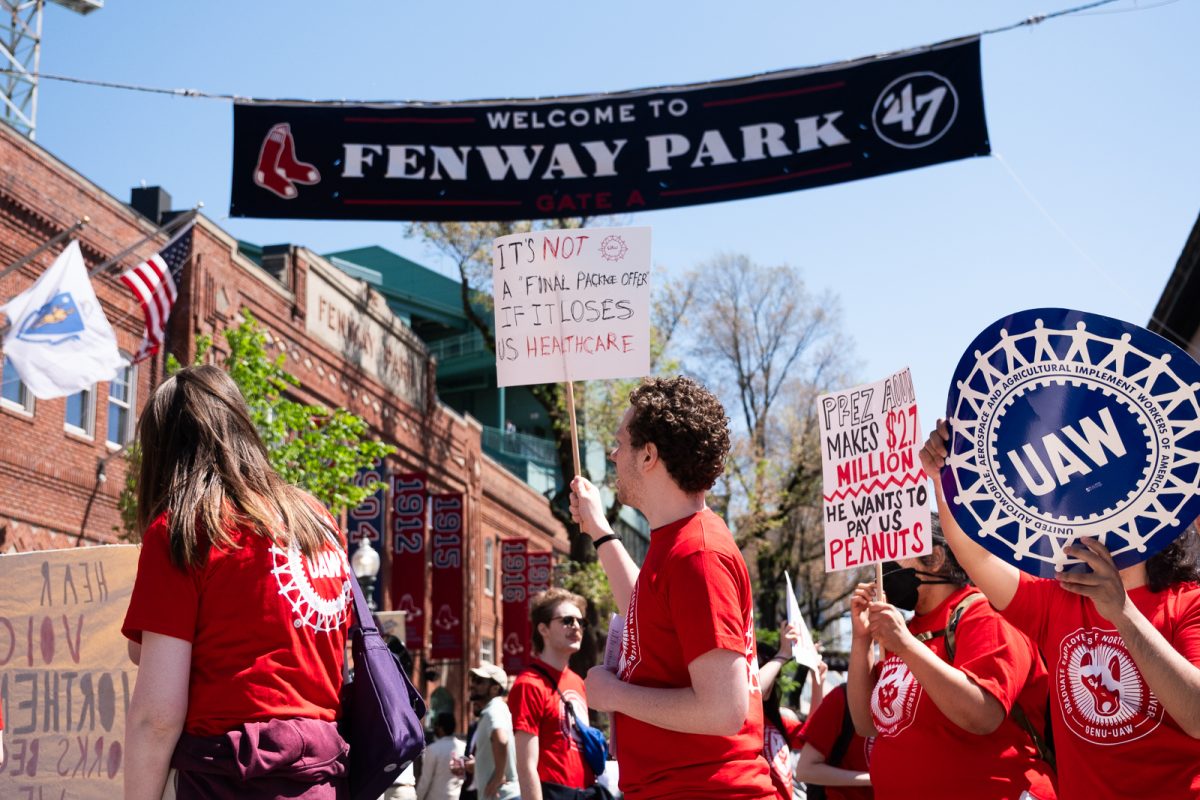By Bradley Rosenberg
Three NU graduate students placed fifth in the Carrot Capital Business Plan Challenge (CCBPC) Saturday with their plan for the “East Bay Brewing Company,” a beer manufacturing business venture. While the placing in the competition did not gain them any prize money, it did gain recognition for both the students and their plan.
“I’m thrilled we even got invited,” said Stephen Feldman, a business graduate student. “We have a brewery plan that got invited to a multi-million dollar event. We’re really lucky.”
The CCBPC is billed by its sponsor company’s Web site, carrotcapital.com, as a challenge to reward “creativity and innovation in business [and business plans].”
“Eligible students and recent graduates who best identify and present a viable business plan … will have a chance to win up to $3 million in funding offers, plus will have bragging rights to having snagged one of the most prestigious awards in this field of competition,” the Web site says.
At least one member of each applying team had to be a current undergraduate or graduate student at a university. Thousands of university graduate students applied, including students from Harvard Business School, Duke, Columbia Business School, Northwestern and Princeton. Only 25 of the teams that applied became finalists. The plans of the 25 finalists were then judged by several prominent company presidents and CEOs.
Feldman and his fellow teammates, Nate Heck and Kristin Keith, came up with the business plan during the fall quarter of 2002.
“I used to be a brewer,” Heck explained. “I worked for a brewer in Minneapolis and at John Harvard’s. I figured [when making the plan for class] that it’s something I want to do someday, so I thought, hey, what the hell? It’s a good opportunity to start thinking along those lines.”
Little did the group know that the plan would provide them with even more opportunities.
“The professor of the class, [Susan] Penta, enjoyed the idea and encouraged us to enter the contest,” said Feldman.
So they did, and, on April 7, the team was notified that they were one of 25 finalists in the competition. The East Bay Brewing Company would be an entrant in the final round of the challenge, a day that Carrot Capital has dubbed “Super Saturday.”
While they did not walk away with any of Carrot Capital’s currency (only companies attaining a place of 1st, 2nd, 3rd or 4th received prize money), the trio did gain something of great value: pride.
“I feel awesome about it,” said Heck. “It was an absolutely incredible experience to write a brewery plan and have it judged by some of the top CEOs in the nation.”
Feldman and Heck are drunk with delight over their brewing company placing, but they also realize the main ingredient that brought them success: a good plan.
“We’re able to address a need with our plan,” said Feldman.
Dennis Ramsier, the Director of MBA programs in the Graduate Business Administration and NU’s delegate on the commission committee, thinks the plan has a lot of potential for success.
“The judges and the people from the committee council all agreed that, if they were able to follow through, [the East Bay Brewing Company] would definitely be successful,” said Ramsier. “I was really quite proud.”
Feldman said that it wasn’t just the plan that helped the team succeed, but also their passion for the plan.
“We approach this business as if it’s not about making money,” he said. “I love beer. We wrote this plan with our love for beer in mind.”
As for what beer Feldman loves, he said he’s quite partial to Pilsner.
“I lived in Prague a few years and I got a little bit spoiled when I was there,” he admits.
Heck, on the other hand, prefers Sierra Nevada.
One kind of beer that both men can appreciate, though, is that of the East Bay Brewing Company.
Heck and Feldman, though, both wish to extend the team’s thanks to the NU community.
“I just want to give thanks to Professor Penta and everyone at NU who gave us support,” said Heck.
Heck also has some advice for NU students looking for a future in business.
“If you have a business plan or business idea, submit it,” he said. “At the very least you get quality feedback.”
As for the future of the East Bay Brewing Company, only Heck seems to want to carry the business on.
“There’s definitely a chance it could work,” Feldman said. “Having a wife and a cat, though, it’s a little difficult to leave. If some millionaire wanted to give us money, I’d say okay. It’d be really nice if someone wanted to throw money at us.”
Heck, though, plans on bringing his idea to fruition, whether the rest of his team is with him or not.
“It’s something I really want to do,” he said. “All the judges solidified it in my mind that it’s something I can do. My goal is that, within three to five years, I’ll start my brewery somewhere.”








